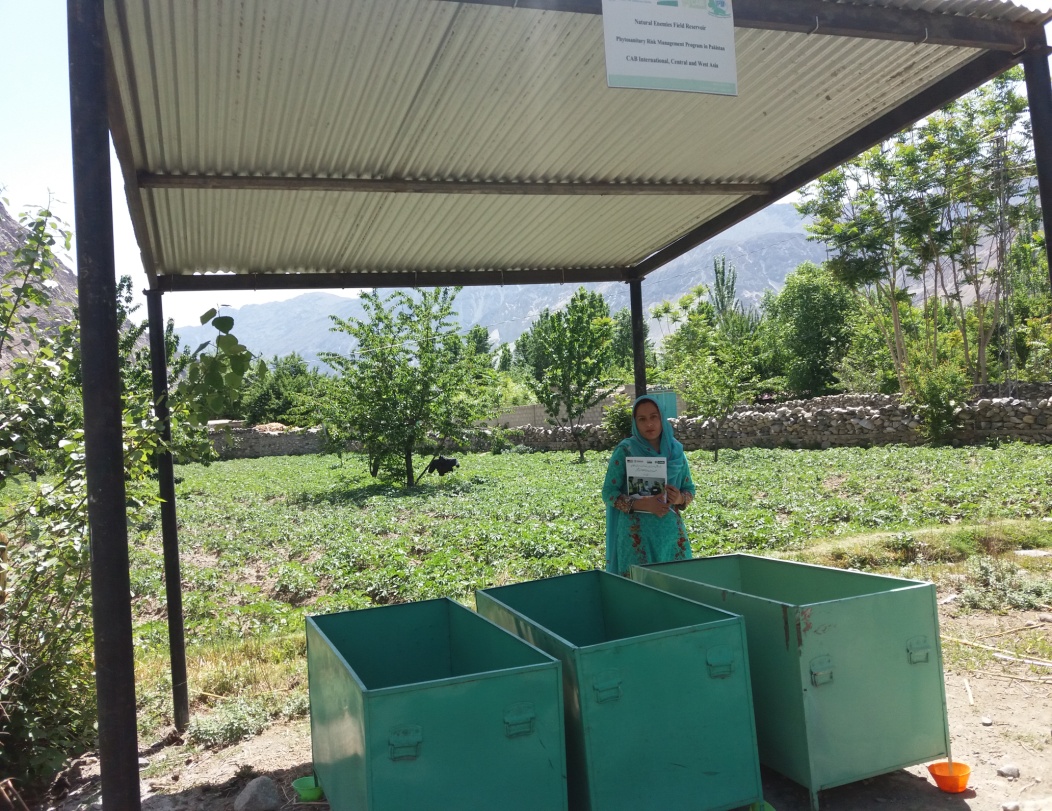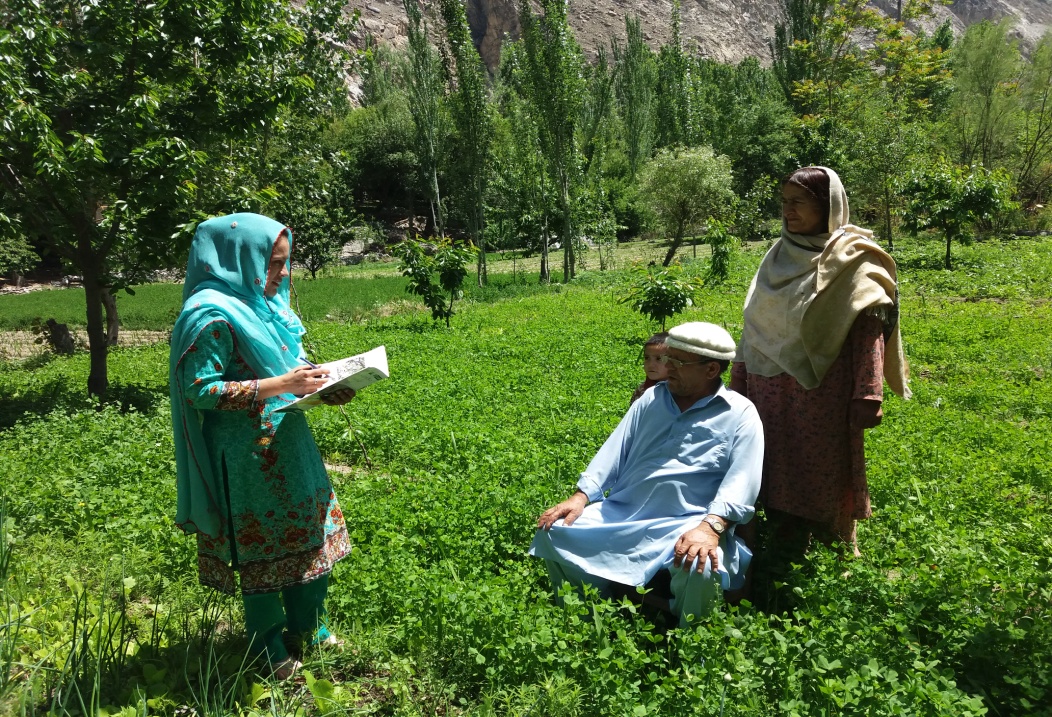Meet Rozina Babar, she is one of thousands of smallholder farmers in Pakistan whose livelihoods are threatened by agricultural pests and diseases that can devastate crops and ultimately have a severe impact on food security and profitability.
However, thanks to the CABI-led Phytosanitary Risk Management Programme – funded by USAID-USDA and working with partners including the Pakistan Agricultural Research Council – Rozina has seen increases in her income from Rs. 30,000 ($260) to Rs. 70,000 ($605).
The fruit and vegetable farmer from Rahimabad, a small village in the district Gilgit in the province of Gilgit Baltistan, has been trained by CABI to implement biological control methods to tackle the fruit fly pest which has been threatening her crops.
Rozina said, “Before the start of the project I used conventional methods of production and didn’t really have sufficient knowledge on how to best manage the orchards and pests – especially the fruit fly – as well as the postharvest handling of my fruits and vegetables.
“I was using pesticides without realising the extra damage they were causing to my crops and the environment. CABI visited my farm and helped construct a mini Natural Enemies Field Reservoir to conserve the natural enemies of the fruit flies.
“The use of biological control agents and better sanitation and trapping has resulted in a 35 percent reduction in fruit fly infestation, better yields and more income for me and my family.”
 Photo: Rozina monitors the mini NEFR at her farm
Photo: Rozina monitors the mini NEFR at her farm
So far the programme has established six biological control laboratories at Rawalpindi, Islamabad, Karachi, Quetta, Gilgit and Skardu in order to mass rear natural enemies. CABI has also developed 14 technologies to tackle pests of concern including rearing techniques for natural enemies of the papaya and giant mealybugs, apple codling moth, acarid mites and fruit fly.
Additional information
Find out more about the work CABI is doing from the project page: ‘Phytosanitary Risk Management Programme in Pakistan’
Read the recently-published story: ‘CABI signs MoU with Agricultural Department Gilgit Baltistan to launch Plantwise program’ and find out how this initiative will also work to improve food security near to where Rozina Babar lives.
Donors
USAID via United States Department of Agriculture (USDA)
Partners
Pakistan Agricultural Research Council (PARC)
Department of Agriculture, Sindh
Department of Agriculture, Balochistan
Department of Agriculture, Gilgit Baltistan
Southern Zone Agricultural Research Centre
All Pakistan Fruit & Vegetables Exporters, Importers and Merchants Association (PFVA)
Rice Exporters Association of Pakistan (REAP)
Related News & Blogs
Highlights from 2024: Most read blogs
As 2024 draws to a close, we’ve tallied the numbers to showcase this year’s highlights on the CABI Blog. From pest management and innovative agricultural courses to youth training initiatives and global recognition, these posts demonstrate the scope of…
17 December 2024





